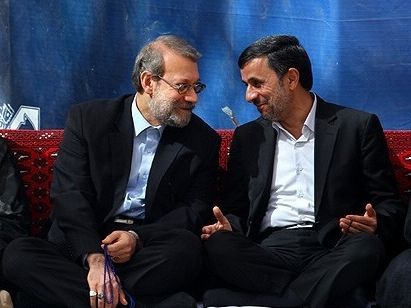Iran’s ‘Pseudo-Election’ Campaign Begins Amid Calls for Boycott

As the election campaign of six hand-picked candidates started in Iran on Monday, opposition groups in the diaspora condemned the process as “pseudo-elections,” calling for a boycott.

As the election campaign of six hand-picked candidates started in Iran on Monday, opposition groups in the diaspora condemned the process as “pseudo-elections,” calling for a boycott.
Opponents from both constitutional monarchy and republican spectrums condemned the Islamic Republic’s highly engineered vote to pick a successor for the late President Ebrahim Raisi, who was killed in a helicopter crash last month.
The political coalition "Coordination for a Secular Democratic Republic in Iran" released a statement emphasizing that boycotting the “pseudo-elections” signifies a renewed commitment to the "Woman, Life, Freedom" movement. The coalition stated, "The ultimate outcome of the continued existence of this regime is the spread of extremism both within and beyond Iran's borders."
The 12-member unelected Guardian Council, which vets candidates, approved only six out of more than 80 who registered to run. Key figures, including former parliament speaker Ali Larijani and former president Mahmoud Ahmadinejad, were disqualified.
The Tehran-based website Khabaronline asked readers to identify whose absence they felt most keenly among the list of qualified candidates. The most frequently mentioned names were Ahmadinejad, Larijani, and other ‘reformists’.
Ghalibaf vs. Pezeshkian
Mohammad Ali Abtahi, former ‘reformist’ President Mohammad Khatami's chief of staff, advanced the view that the only ‘reform’ candidate, Massoud Pezeshkian, can become one of the two top choices. "If the society intends to participate in the elections, there is a possibility of serious competition between Pezeshkian and Ghalibaf."
Parliament Speaker Mohammad Bagher Ghalibaf appears to be the top candidate for the core of the ruling regime, including perhaps a large stratum of the Revolutionary Guard. Pezeshkian can become a threat to Ghalibaf only if the “gray strata” of voters, who have stayed away from the ballot boxes in the last three elections, decide to turn out to vote this time.
In an online survey by Tabnak news website in Tehran, out of more than 2,500 participants, 66% voted for Pezeshkian and only 14% for Qalibaf, which is close to Abtahi's opinion. Even when the number of respondents increased to more than 6000, the ratio was almost the same. Although this is not a reliable survey, it presents a sense of how domestic users reacted to the news. The question is if the general public, who has lost trust in the political system, will once again turn out to vote for a ‘reformist.’
Over the past 28 years, 'reformists' or 'moderates' held the presidency for 16 years, yet had no significant impact on the core policies pursued by Supreme Leader Ali Khamenei. Iran's nuclear dispute with the West, its malign activities in the region, and its centralized and inefficient economic system all remained unchanged.
Nevertheless, Gholamhossein Karbaschi, the former mayor of Tehran and one of the reformists, also pitched for Pezeshkian: "There should be a bipolarity between Pezeshkian and Ghalibaf. Mr. Pezeshkian is in a better position than Ghalibaf," whose name has been tarnished by negative news about corruption, he insisted.
The reformists vying for executive positions
The 'reformists' were largely barred from having significant candidates in the parliamentary elections in March and couldn't compete effectively. However, the approval of Pezeshkian as a presidential candidate has given them renewed hope. As a result, they are now rallying behind him both collectively and individually.
Mohammad Reza Aref, who was the leader of the reformist minority faction in the parliament (2016-2020), referring to the special importance of the upcoming elections, considered the presence of Pezeshkian a valuable opportunity for the people and the regime and announced his support for him. Karbaschi's support is also key because he is one of the most important donors of the reformist camp. Marginalized reformists want to return to the executive management field with Pezeshkian in charge of the executive branch.
Election campaigns that failed
Immediately after the qualification results were announced, political campaigns began on government outlets. On Monday, the lottery ceremony for radio and television campaigns for the six candidates was broadcast live on state TV's Channel 1, following the evening news, to generate excitement for the elections.
Among the disqualified candidates, Ali Larijani was active on social media. A few hours before the news of his disqualification, he announced that he had received more than one million messages through domestic and foreign social networks. This message did not have much effect on the statement of the Guardian Council. Most users reacted to Larijani's tweet with skepticism.
Ahmadinejad's frequent presence in gatherings in his Narmak neighborhood and Tehran's old bazaar also did not help him gain the Guardian Council's approval for his candidacy. The Guardian Council seeks a subdued and quiet election, and his actions contributed to his disqualification. The selection of qualified candidates is reminiscent of the non-competitive, low-participation presidential elections of 2021.